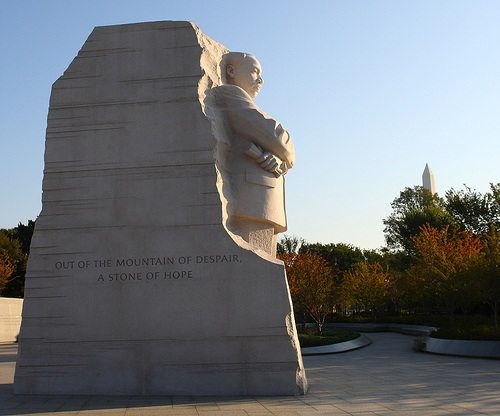
August 1, 2103; The Grio
August is Black Philanthropy Month. What does that mean for the nonprofit sector? Tracey Webb, the founder of BlackGivesBack.com, suggests that it is a time to “channel our collective energy and resources to transform our communities…by contributing time, talent and treasure.”
Webb explains that BPM 2013 will aim “to foster civic engagement around philanthropy, amplify authentic stories of black philanthropy, cultivate the next generation of givers and expand opportunities for people of African descent to give through new and traditional channels, including giving circles, global giving, crowd funding, volunteerism and more.”
Why black philanthropy? Valaida Fullwood, the author of Giving Back: A Tribute to Generations of African American Philanthropists, says that despite gains for black Americans, she is “troubled by how much race still determines our experiences and opportunities,” citing issues such as “disparities in employment, pay, wealth and healthcare, inequities in educational opportunities and student achievement, re-segregation of schools, [and] imbalances within the criminal justice system.”
Sign up for our free newsletters
Subscribe to NPQ's newsletters to have our top stories delivered directly to your inbox.
By signing up, you agree to our privacy policy and terms of use, and to receive messages from NPQ and our partners.
Webb says that Black Philanthropy Month was started by the African Women’s Development Fund USA as “an annual, global celebration of African-descent giving in the United States and worldwide.” Jackie Copeland-Carson, the executive director of AWDF, explains that BPM celebrates the black community’s “rich, shared traditions of giving, self-help, and innovation throughout the U.S. and the world.”
How are localities participating in BPM 2013? In Charlotte NC, a giving circle called New Generation of African American Philanthropists (NGAAP) is sponsoring forums on philanthropy and the arts and on the meaning of the 50th anniversary of the Rev. Martin Luther King Jr.’s “I Have a Dream” speech. On the Black Philanthropy Month website, there are a number of BPM events listed in August and beyond, though their identity as BPM-specific events is not necessarily obvious. The short list of BPM 2013 sponsors notes a commitment of $25,000 for BPM from DonorsChoose.org as well as a pledge to match donations to classroom projects posted on DonorsChoose on a dollar-for-dollar basis (up to $50 per donor) through the month of August for donors who use the BPM promo code “DREAMS.”
While not conducting an intensive review of other organizations, we haven’t seen other organizations, particularly civil rights organizations or the Congressional Black Caucus, making mention of, much less recognizing, BPM 2013. There have, however, been a number of calls for increased philanthropic engagement addressing the disparities that Webb listed, lifted up by the reactions to the Zimmerman verdict regarding the killing of Trayvon Martin.
Shawn Dove, who runs the Campaign for Black Male Achievement of the Open Society Foundations, wrote that there’s a need for philanthropic commitment to addressing the needs of black men and boys. A blog posting on the website of the Joint Affinity Groups endorsed philanthropic support for black men and boys, but called for philanthropic attention to the bigger issue of racial disparities on a number of issues. Another blog called for affluent blacks to capitalize a “National Anti-Racial Profiling Fund.”
There would seem to be a number of organizations that one would expect to be involved in Black Philanthropy Month, or at least recognizing or linking BPM to major issues like gun violence, racial profiling, stand-your-ground laws, and the Supreme Court decision on the Voting Rights Act, among others. Can NPQ Newswire readers tell us what they see as the importance of Black Philanthropy month and offer specifics about BPM programs they are joining?—Rick Cohen












